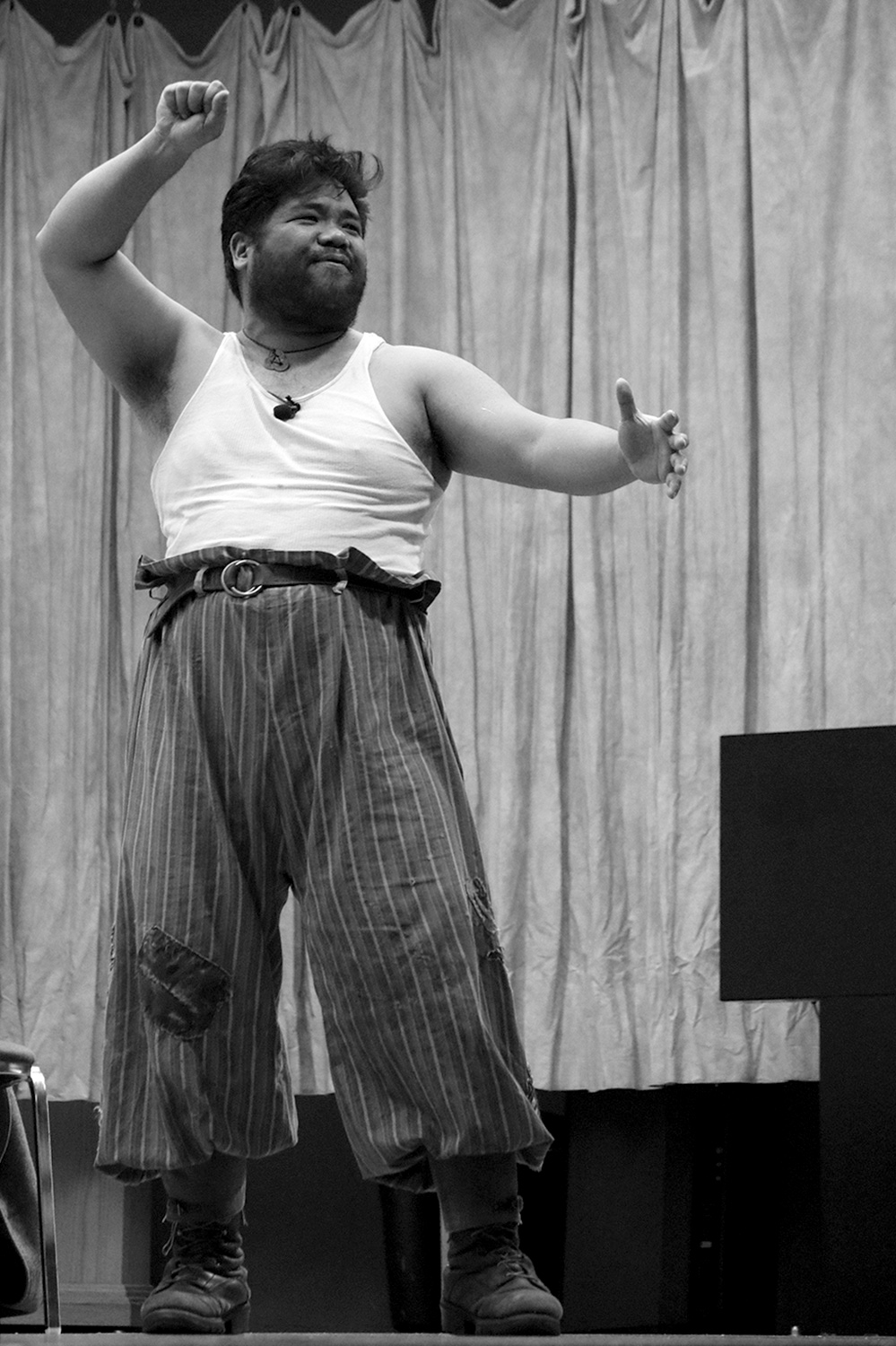Editor’s note: This story comes from the Next Generation Radio Project, a journalism training program sponsored by NPR, OPB and public media organizations across the country.

Paul Susi poses onstage at the Oregon State Penitentiary in Salem, Ore., during a performance of “An Iliad” in 2018. Susi toured “An Iliad” with the Northwest Classical Theatre Collaborative both inside and outside prisons.
Photo courtesy of Northwest Classical Theatre Collaborative
In his time as a theater actor, educator, homeless shelter manager and activist, Paul Susi plays multiple roles in his community. Born in Portland, Oregon, Susi feels the burden of being American.
“To be an American right now, it feels like a curse,” Susi said. “It feels like a thing that you have to bear. There’s this heritage, this lineage of trauma that we’ve all inherited.”
Fleeing the Philippines during the Marcos Regime, Susi said his parents believed the American Dream was worth the immense sacrifice. But for him, that dream rings hollow.
“I think my father accepts that I’m not the summation of his dream; I’m not the consummation of their sacrifices. My mother never accepted it,” Susi said. “So I don’t feel proud to be an American, but I do feel committed to do as much as I can doing good in the world, and creating a better lineage for my spiritual successors to come.”
Susi uses theater to explore his identity. Introduced to the arts in a challenging time of his adolescence, it gave him the structure to succeed in school. But throughout adulthood, he continues to face difficult truths as a performer.

(Left to right) Paul Susi, composer/cellist Anna Fritz, and director Patrick Walsh in front of the Coffee Creek Correctional Facility in Wilsonville, Ore., where Susi performed in 2018.
Photo courtesy of Northwest Classical Theatre Collaborative
“Most of the time I’m called to do a show ... I’m called because they can’t get the right ethnicity for the part. But I’m the guy with the classical theater training — I can pass for Japanese or Spanish or Tibetan or Native American. And I’ve passed for everything, including white,” Susi said.
“But I’m never going to play Hamlet. No one would ever cast me as Hamlet.”
Most recently, Susi starred in the Northwest Classical Theatre Collaborative’s production of “An Iliad,” a modern adaptation of Homer’s classic Greek epic. The production toured through 30 prisons, community centers, houses of worship and theaters throughout Oregon in 2018 and 2019. To Susi, these performances allow for incarcerated people to reflect on their own experiences and to engage with cultural resources they don’t otherwise have access to.
“‘The Iliad’ is really explicit about the violence that happens in war. The guys were able to really resonate with the emotional truth of being victimized by so much violence over so many years,” Susi said.

Northwest Classical Theatre Collaborative Director Patrick Walsh, left, and Paul Susi sit onstage at the Oregon State Penitentiary in Salem, Ore., talking with adults in custody.
Photo courtesy of Northwest Classical Theatre Collaborative
“And what I found in connecting with adults in custody is that their sense of community with the outside world has long been broken by their incarceration. ... It just underscored how little power they have over their reality and their experience.”
Through his performances, Susi strives to break through physical and emotional walls as he brings real connection to adults in custody.
“Theater allows you to see yourself and know yourself in a different way, by sharing a story with folks you don’t know in real time,” Susi said. “So that little alchemy of humanizing yourself ... that feels like what I am trying to do every day.”